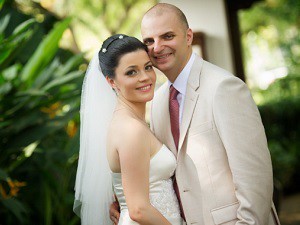

Let me explain the confusing world of specialized definitions in Ukraine and Russia. You will realize that ladies have no dubious intentions when putting certain words in their online profiles.
What Russian and Ukrainian women mean by profession
Her official qualification obtained through an educational institution is what women mean by “profession”. The stable Russian expression “I work according to my profession” means she has a degree and works in the same field, as opposed to working in a different field than her qualification.

It happens because having a degree is an end in itself for people in Russia and Ukraine. Many people don’t care what degree they will get, as long as they have one. Once a person has a degree, he or she is considered as having “higher education” (an actual term meaning the person has graduated from a university), which is an essential requirement even for basic positions like an office clerk.
It is not unusual for Russian and Ukrainian women who officially have degrees of medical doctors to work as pharmaceutical representatives or selling natural remedies such as Herbalife, Neways etc. Such occupations allow for a higher income, as most general practitioners and specialists work for poorly subsidised government hospitals and have very low income, driving more entrepreneurial medical professionals to seek better pay.
Single mothers don’t have the luxury of working jobs that match their degrees but provide insufficient income, thus many opt for occupations such as hairdresser or manicurist, which would often offer higher wages than of professionals like a junior lawyer in a law firm. If you don’t have enough money to feed your child, thoughts about the future career potential aren’t as important as putting bread on the table today.
How Russians and Ukrainians define professions

- Economics (her profession will be listed as “economist”)
- Technical studies/engineering (“engineer”)
- Education (“pedagogue” or “teacher”)
- Medicine (“doctor”, which in Russia always means “medical doctor”; doctor of sciences is not called “doctor” but “doctor of science”)
- Native language and literature (“philologist”, which means a specialist of native language, usually this degree is required for teaching Russian/Ukrainian language at school)
- Foreign languages (“teacher of English/German/French” or “translator”)
- etc
The diploma of higher education can be “standard” or “red”. Red diplomas (certificates with red coloured covers, as opposed to regular blue covers) are given to students whose marks have 50% or more “A’s”. Red diploma means “diploma of excellence”.
For example, I graduated from the philosophical department of University with a red diploma. My profession was listed as “philosopher, teacher of philosophy”.
Occupations of Russian and Ukrainian women

Job titles for certain positions, as they are written in the labour book, may not reflect the woman’s actual post, as it would be called in a western company. It is rather common for smaller companies to give enticing names to job titles. For example, a salesperson on the store floor may be named “sales manager”.
The word “manager” is widely used for positions that have no subordinates whatsoever. If a Russian or Ukrainian girl says she is a “manager”, ask her how many subordinates she has, this will clear it up. Most likely, if she is young, her position is of an office clerk in a department. (For which, as you remember, she still usually needs a degree to apply.)
Common misinterpretations

For example:
- Doctor-cosmetologist — she may be a beautician who is licensed to do Botox injections or prescribe skin treatment programs.
- Economist — it may be an official job title as in her labour book, but it can mean a variety of administrative positions in departments of accounting, finance, marketing, advertising etc.
- Accountant — she may be just a bookkeeper working for an accounting or finance department.
One of the jobs I had in Russia was for the advertising bureau of the marketing department of a large industrial factory. My position was named in the labour book as “engineer-economist” in accordance with the official nomenclature. It was a general job involving things from planning marketing campaigns to copywriting and graphic design, as well as negotiations with advertising providers. Basically, it was a position of a “marketing specialist”, and had nothing to do with engineering or economics as a science. But if someone asked me back then what my job was, I probably wouldn’t be able to give it a correct English title.
How to find out what her job really is
The simplest way: ask her!
Ask the lady what are her job responsibilities, how many people work in her department, does she have any subordinates and how many. Ask her how long has she been working for this company, and what was her employment before that. This will give you some ideas about her actual position.
The same with her education: ask her how many years did she study for, what subjects did she do, and what faculty, college or university did she graduate from. Ask her what was the title and theme of her “diploma work” (that’s the name Russians and Ukrainians use for thesis).
Not only will you get more information about her professional background but you will also have something to talk about.
- International dating: How many women should I meet?
- 4 types of men who are successful in meeting Ukrainian women
- 58 questions to ask Russian and Ukrainian women when dating
- Can I really meet someone? — The story of Simon and Tatsiana
>> All articles (in English)
Share this article













I agree fully that not every woman works in her profession. As for me it’s not a huge problem. My qualification is manager-economist, but I work at sales department. In Ukraine every person goes to universities at 17. But at 24 you can realize that you don’t like your job, and a lot of women with a diploma of a teacher or lawyer become good hair stylists or florists, and make a living using their hobbies.
So, you see guys, “manager-economist” means that the lady has graduated from a department of management or economics. Working in sales a person can have education in marketing, management, economics, or even in teaching or foreign languages. (I don’t even know if there any universities that give a qualification in “sales”.)
This is extremely useful information – thank you. I have often been confused by job descriptions and the connection with degree course. As you say a bit of probing is needed to properly understand a womans position.
What is the experience of Russian ladies who go to live in the UK ? Are they about to find work at the level of their skills?
Martin, all women can find a job in another country. It all depends, first of all, how well she speaks the language. The best for a lady is to join courses of English as the second language, as soon as she arrives in your country. They will give her correct pronunciation and vocabulary, much better for her than studying the language at home in Russia or Ukraine. (My English still has a very strong accent even after 15 years, all because I studied it at home before immigrating and never went to courses here.) Regarding her education, she will be… Read more »
I agree with Olga Konoplya. A lot of women do not work for their profession and education, because in many cases, it is not a well paid profession, especially for teachers and doctors (in Ukraine). It is very complicated to find something suitable.
In Russia it is normal when a woman with a diploma of teacher works as hairdresser. Back in times of USSR, this profession was one of “respectable occupations” and parents of young women almost used to force them to choose one of these professions. However today, teacher is a very low-payed occupation in Russia and women have to choose another way to get more money.
I always thought that “doctor of cosmetology” was not a real MD (Medical Doctor). But, do “doctors” in Russia and Ukraine have a full Medical Doctorate like they do in the U.S.??? or do they just have the equivalent of a Master’s Degree? In the U.S., a Master’s Degree is 1-2 years beyond the 4-year Bachelor’s Degree, and any type of Doctoral Degree is 3-6 years beyond the Bachelor’s Degree. Depending on the profession, one can sometimes have a Bachelor’s, skip the Master’s, and go directly to work on one’s Doctorate, especially in medicine.
Peter, medical doctors working in medicine in Russia and Ukraine have the same training: 6 years of Medical University (they are not called medical schools) plus 2-3 years called “Ordinatura”, which is working as a junior doctor in hospitals. Only after that they will get the full degree as a medical doctor.
Is the 6 years of Medical University that you wrote about yesterday, after high school or after a pre-med Bachelor’s degree? The 2-3 years of “Ordinatura” in Russia is called “Residency” in the U.S. If Medical University in Russia is started after high school at age 17, then at age 23 one is starting Ordinatura. Is that why I see some young women who say they are doctors as young as ages of 24-26? In the U.S., one would not even finish medical school until age ~26 and just starting Residency.
Yes, women finish high school at 17 in Russia and Ukraine. But they may also state their profession as Medical doctor still being students, since this is their current profession they are studying. There is no pre-med Bachelor degree, it’s a 6-year degree to become a medical doctor.
Makes sense to me.
Very interesting…This explains a lot! thanks
Yes, it’s peculiarity of Russia and Ukraine. It’s our reality to which we get accustomed and take it absolutely calmly and don’t even think that somebody may see it as strange. I like the article and consider it very useful. It shows a fresh eye on the problem.
My diploma with MA from Ukrainian university was translated, than I got an Apostille, than I entered to EU university, and after 1 year of study I have got MA from EU university. This way is non-expensive that is why many Ukrainians prefer to get a degree from Ukrainian university first.
K, my friends from Russia and Ukraine simply got an analogue degree (Bachelor) in Australia instead of their local degrees. All they did was to apply for recognition with the correct documentation, didn’t cost them practically anything.
But definitely having a degree from a EU university is preferable if you wish to work in Europe.
Anfortunately many people in Ukraine (especially women) really have peofessions diferent from what is written in their dipllomas. I think it’s because of poor quality of education in Ukraine and also Ukrainian universities produce too many “secialists”. I’m myself a student and now I understand that 90% of what I will need for my future profession I have to learn by meself.
I think it`s really awful when you spend 5 or 6 years to get higher education and become a real professional … and later you work in absolutely another sphere where your knowledge and abilities don`t mean anything. And you can`t and even don`t want to change anything because your present job gives you more money that helps you to provide yourself and your family with the most important things. No wonder that sometimes foreigners don`t understand the difference between profession and occupation or how a teacher can work as a hairdresser. Sometimes even people from Ukraine or Russia can`t… Read more »
I, too, for the teacher profession, but where work pay more. At school, a lot of work and little pay. Course I will I find another job where the pay in proportion to the work done on merit.
The problem is that lots of graduates of humanitarian departments of universities such as departments of history, philisiphy, arts, philology are not demanded in contemporary labor market. So such graduates have to earn money not according to their qualification. More often they work in saling.
I think that is not obligatory to work in the same field as our principal speciality. Every woman must develop, acquiring different specialities’skills. I have 2 diplomas of higher education, but my principal occupation is not concerned with my qualification. And it is advantage for every woman.
I think that is not obligatory to work in the same field as our principal speciality. Every woman must develop, acquiring different specialities’skills. I have 2 diplomas of higher education, but my principal occupation is not concerned with my qualification. It is advantage for every woman.
Everything depends on a person. I have a pedagogical education and I like to be a teacher but also I would like to try something new and unusual. I would like to be a reporter, a model. Why not? And I am ready to study and get new skills.
I am working not according to education, too: I am electronic engineer by basic education, I studied quite a lot then in economic and languages. My current job is manager/interpreter in industry. I am not a typical women: I like technics, electronics and drawing. My technical knowledges help me in my work, and allow to meet more intelligent and interesting peoples. The more educations you have, the more you can (said my grandmother).
Of course a lot of people today do not work according to the obtained profession. And it is the sad reality. Sometimes it’s just hard to find a job by profession, and sometimes such kind of work gives very little money.
From what I have seen, many women in the eastern European countries have very good educations, many of them engineers, technicians, machinists, etc. Here in America, many of us could not find jobs in our degree fields. I myself was in engineering and left school working on commercial merchant ships. Years later, I taught myself celestial navigation, took precision machining, and did electrical work. Today I am starting my own small business from all of this experience. And I wish to continue in the Russian/Ukrainian language.